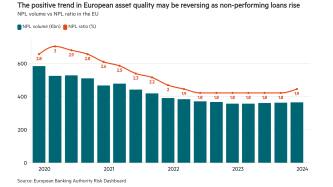At a glance
- Dutch bank ING is to phase out dedicated financing for new unabated steel blast furnaces and for the extension of existing unabated blast furnaces, as well as new coking coal mines, or the expansion of existing ones
- With major international banks like ING, BNP Paribas and HSBC ruling out finance for new metallurgical coal mines, NGOs say blast furnace operating steelmakers should be concerned about their access to future finance and metallurgical coal supply
- NGOs called on other banks that are signatories to the Sustainable STEEL Principles to adopt similar measures, saying ING’s new commitment on steel sets a minimum standard
Steel production, which uses coking coal, is one of the dirtiest industries in the world. But could a decision by Dutch bank ING to phase out dedicated financing for new ‘unabated’ steel blast furnaces and for the extension of existing unabated blast furnaces, as well as new coking (or metallurgical) coal mines or the expansion of existing ones, be a major turning point in making steel more ‘green’?
“We have decided to no longer provide dedicated finance to new coking coal mines or the expansion of existing coking coal mines,” a spokesperson for the bank said. “We will take an engagement-based approach for clients that are involved in operating coking coal mines, asking them to explain to us how they plan to align with 1.5°C goals on time.”
The Dutch bank announced its decision in its latest energy policy. NGOs hailed it as a major step forward in supporting the decarbonisation of the steel sector, which is one of the biggest industrial sources of CO2 emissions. “ING’s new policy should send a clear message to steelmakers around the world: metallurgical coal’s future is dead,” says Julia Hovenier, banks and steel campaigner at BankTrack.
“With major international banks like ING, BNP Paribas and HSBC ruling out finance for new metallurgical coal mines, blast furnace operating steelmakers should be concerned about their access to future finance and metallurgical coal supply,” she continues.
Reclaim Finance industry campaigner Cynthia Rocamora said not only has ING become one of the first financial institutions to include metallurgical, or met, coal in its energy policy, it is also the first major bank to include steel facilities in this policy, making it a leader in decarbonising the industry.
The French NGO says it is only aware of six other banks with policies on project finance for metallurgical coal. They include Société Générale, Macquarie, HSBC, Westpac, Caixa Bank and BNP Paribas, with Société Générale being the first in 2021. Other banks are expected to announce net zero targets for steel soon.
RMI, a non-profit which developed the Sustainable STEEL Principles (SSPs) alongside banks like ING, said the Dutch Bank’s decision is a significant signal to other lenders considering the risks and impacts of exposure to metallurgical coal mining. “This may be what pushes them to adopt similar policies. And it’s a signal to clients — miners and steelmakers alike. Unabated blast furnaces as well as the future of steelmaking from coal will continue to face pressure and the need to transition.”
Why is ING’s new commitment on steel such a big deal?
Metallurgical coal is a black sedimentary rock found in the Earth’s crust that is used to make steel. It has more carbon, less ash and less moisture than thermal coal, which is used in electricity production.
Although some banks have announced plans to phase out financing for thermal coal, the same commitments have not been extended to metallurgical coal, which is the biggest industrial emitter of CO2 globally. The iron and steel industry worldwide accounts for 11% of global CO2 emissions.
Since 2016, Reclaim Finance estimates that the world’s biggest banks have provided $557bn in finance to the 50 biggest developers in the metallurgical coal sector. Investors have also provided a financial lifeline, investing more than $163bn in these companies, according to Reclaim Finance.
While thermal coal can be readily substituted by renewables or gas, ING says it is more difficult for the steel industry to do away with coking coal, but says it is taking steps to support the decarbonisation of the sector, including measures to lower its exposure to coking coal.
NGOs call on ING to take an even stronger stance
But to strengthen its leadership in decarbonising steel, BankTrack and Reclaim Finance called on ING to adopt an even stronger stance by ending corporate finance and bond facilitation services for companies developing steel infrastructure that depends on metallurgical coal, and companies that have metallurgical coal mining expansion plans. They estimate that just 1.4% of finance for metallurgical coal developers currently takes the form of project finance.
By only restricting finance for unabated blast furnaces, NGOs say ING leaves room for inadequate decarbonisation technologies such as carbon capture, utilisation and storage, which may not deliver emission cuts quickly enough, and would prolong the use of coal in steelmaking. However, ING says it is acting as a leading financial structurer for the world’s first green steel plant utilising green hydrogen rather than coking coal.
Reclaim Finance and BankWatch also called on other banks (Citi, Crédit Agricole, Société Générale, Standard Chartered and UniCredit) that are signatories to the SSPs to adopt similar measures to the Dutch bank, saying ING’s new commitment on steel sets a minimum standard.
Responding to ING’s latest moves, Société Générale said it took strong commitments to reduce its exposure to metallurgical coal back in 2021. “These commitments, which set Société Générale amongst the most advanced banks, go well beyond project finance restrictions only,” a spokesperson told The Banker.
The bank’s activities linked to metallurgical coal are framed by the group’s mining sector policy, which excludes clients strongly involved in metallurgical coal extraction (>50% revenues) and any transaction or financial service dedicated to metallurgical coal extraction or primarily linked infrastructures.
“Société Générale‘s strategy is to finance the decarbonisation of primary steel along with the development of secondary steel and therefore aims to firstly support its clients, which will face important challenges to transition their assets and, secondly, develop dedicated financing for brown-to-green and low-carbon steel projects,” the spokesperson said.
Green hydrogen (made from renewable energy sources) is one of the levers that can be used to decarbonise the steel sector. Société Générale says it is acting as a financial advisor to H2 Green Steel in Sweden, which will be the world’s first large-scale project making green steel.
Other banks contacted did not return requests for comment, but one financial institution, which spoke on condition of anonymity, said when they first issued their policy on phasing out financing for thermal coal, they asked themselves whether it should also include metallurgical coal or not.
“At that time, the viability of alternatives to met coal for furnaces was not so high,” they explained, “so we decided not to cover met coal because at that point the hydrogen furnaces, rather than electric furnaces, were not in a position to be able to take over from met coal in terms of the needs for the steelmaking industry.”
But given ING’s latest moves, and advances in alternative energy sources such as ‘green hydrogen’, the financial institution said its chief risk officer, the head of strategy and ESG, and the rest of top management, are now asking themselves what they should do about metallurgical coal.
How impactful are the SSPs?
Global banks representing $23bn in steel loans signed up to the SSPs — the first Climate-Aligned Finance agreement for lenders to the steel industry — in September 2022.
The SSPs were designed by a working group facilitated by RMI, and led by ING and co-led by Société Générale, with participation from Citi, Standard Chartered and UniCredit. The SSPs provide banks with technical tools to assess the alignment of their steel sector clients with a robust 1.5°C-aligned trajectory, and commits signatory banks to publicly disclose the alignment of their overall lending to the sector.
However, Ms Rocamora of Reclaim Finance says that, so far, the SSPs have had “very little impact”. “Only a few banks have signed up and the focus is all on measurement and disclosure, not about restricting finance,” she says.
A spokesperson for RMI says that the SSPs’ signatories commit to unparalleled transparency and have implemented a methodology that makes it easy to compare their progress to other signatories. “This is a high bar we hope other institutions will evolve to be a part of,” they said, adding that scaling standards takes time, and the SSPs’ impact and effectiveness will increase with the number of signatories.
While the SSPs cannot dictate which technologies or fuels banks can finance, RMI says the SSPs enable effective engagement. For example, half of the SSPs’ signatories — ING, UniCredit, and Société Générale — together with two other banks, recently provided €3.3bn in senior debt to H2 Green Steel for the development of one of the world’s first large-scale green steel plants.
“ING has historically been an early or first mover on issuing new or ambitious restriction policies for fossil fuels,” said the RMI spokesperson. “They are rarely alone in these moves at the end of the day, especially as banks tend to avoid being the ‘last one standing’ with potentially risky exposure.”













